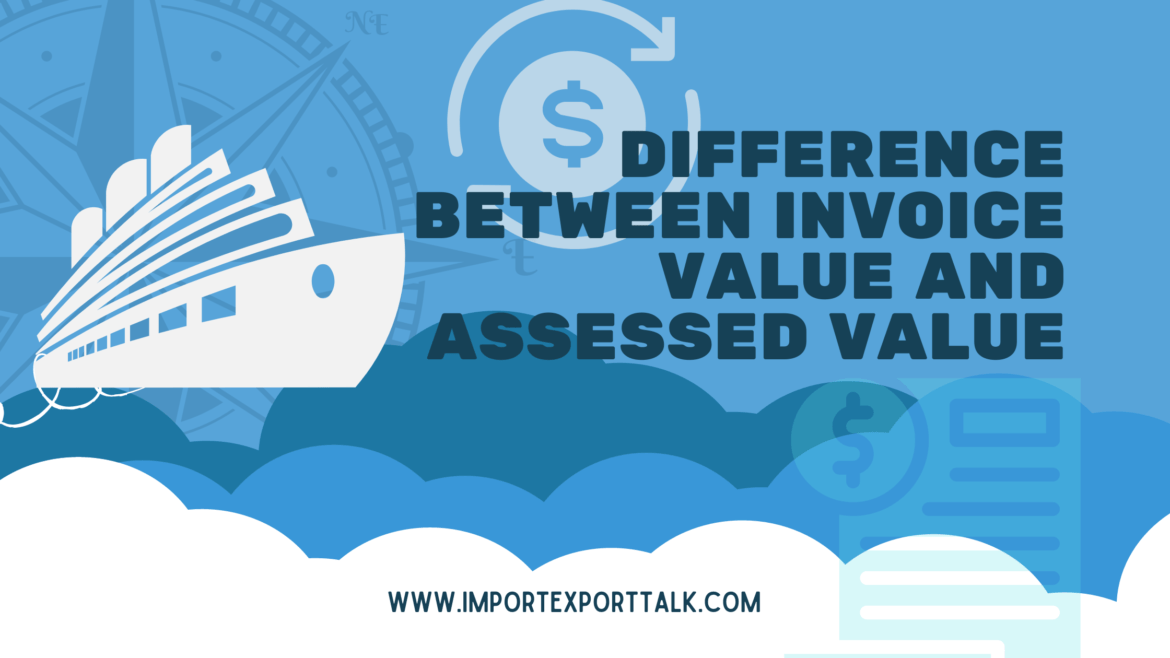We will be focusing on the difference between the invoice value and the assessed value of goods and the significance of accurate valuation in trade transactions. Accurate valuation plays a critical role in international trade, where goods are exchanged across borders. The valuation of goods affects customs duties, taxes, and compliance with regulatory requirements. Understanding these variances is crucial for businesses to comply with customs regulations and avoid potential penalties.
Understanding Invoice Value
The invoice value represents the actual price paid or payable for the goods being imported. It includes the cost of the goods, freight charges, insurance, and any other related expenses up to the point of importation.
Understanding Assessed Value
On the other hand, the assessed value is determined by the customs authorities based on the transactional value of similar goods, often referred to as the “transaction value method.” If the customs authorities have doubts about the accuracy of the invoice value, they may resort to alternative methods of valuation, such as the deductive value method or computed value method.
Understanding Customs Valuation
Customs valuation refers to the process of determining the value of imported goods for the purpose of assessing applicable customs duties and taxes. The accuracy of this valuation is critical as it directly impacts the financial implications for both importers and the government.
The Significance of Accurate Valuation in International Trade
1. Determining Customs Duties and Taxes
The accurate valuation of goods is essential for calculating customs duties and taxes imposed by importing countries. Customs authorities use the declared value of goods to assess the applicable tariffs and taxes. Incorrect valuation can result in underpayment or overpayment of duties, leading to financial losses or potential delays in customs clearance.
2. Compliance with Customs Regulations
Customs authorities worldwide require businesses to declare the correct value of imported goods. Failure to comply with these regulations can lead to severe consequences, such as fines, penalties, or even shipment confiscation. Accurate valuation ensures adherence to customs laws and maintains a company’s reputation as a reliable trade partner.
3. Facilitating Trade Facilitation Agreements
Accurate valuation is essential for countries participating in trade facilitation agreements such as the World Trade Organization’s (WTO) Trade Facilitation Agreement (TFA). These agreements aim to streamline customs procedures, reduce trade barriers, and promote smoother cross-border transactions. Accurate valuation is a fundamental component of transparent and efficient trade facilitation processes.
4. Preventing Transfer Pricing Abuses
Transfer pricing refers to the practice of setting the price for goods and services between related parties in different countries. Accurate valuation prevents transfer pricing abuses, where related parties manipulate prices to shift profits and evade taxes. Many countries have specific transfer pricing regulations to combat such practices and ensure fair taxation.
Difference Between Invoice Value and Assessed Value
1. Inclusion of Freight and Insurance Costs
One common variance between the invoice value and the assessed value is the inclusion of freight and insurance costs. Some countries require these costs to be added to the invoice value, while others do not. Accurate documentation of these additional costs is crucial for determining the correct assessed value.
2. Currency Conversion
Currency conversion can lead to discrepancies between the invoice value and the assessed value. Importers and exporters must use the same exchange rate as required by customs authorities to prevent valuation errors.
3. Royalties and License Fees
Royalties and license fees for intellectual property rights may need to be included in the assessed value. However, different countries have varying rules regarding the inclusion of these fees, leading to variances in valuation.
4. Special Valuation Methods
Customs authorities may use special valuation methods when the invoice value is not acceptable. These methods, such as transaction value of identical goods or deductive value, can result in different assessed values.
Tips for Accurate Valuation
1. Maintain Proper Documentation
Accurate valuation requires meticulous record-keeping. Ensure that all invoices, shipping documents, and relevant financial records are well-maintained and easily accessible.
2. Seek Professional Guidance
Consult with customs experts or trade consultants to understand the valuation requirements of specific countries and navigate the complexities of international trade.
3. Regularly Update Valuation Processes
Stay informed about changes in customs regulations and valuation methods to ensure ongoing compliance and avoid potential valuation errors.
The difference between the invoice value and the assessed value is crucial for businesses to navigate the complexities of global trade successfully. Understanding accurate valuation is a fundamental aspect of international trade, with significant implications for customs duties, taxes, and compliance. By adhering to customs regulations, maintaining proper documentation, and seeking professional guidance when needed, businesses can ensure accurate valuation and foster seamless cross-border transactions.


1 comment
[…] Exploring the Difference Between Invoice Value and Assessed Value […]